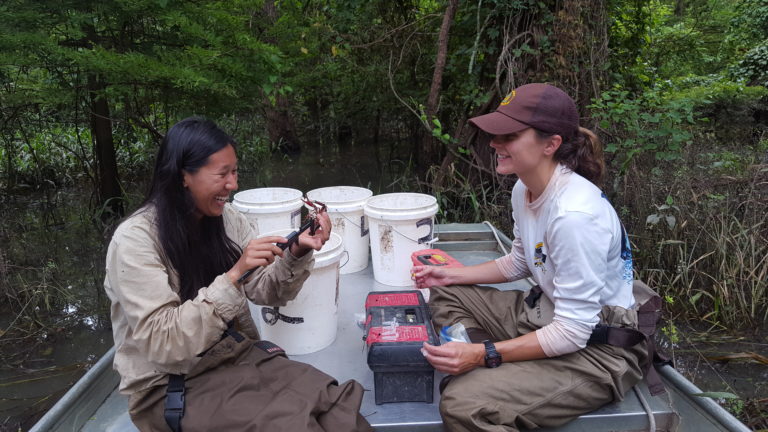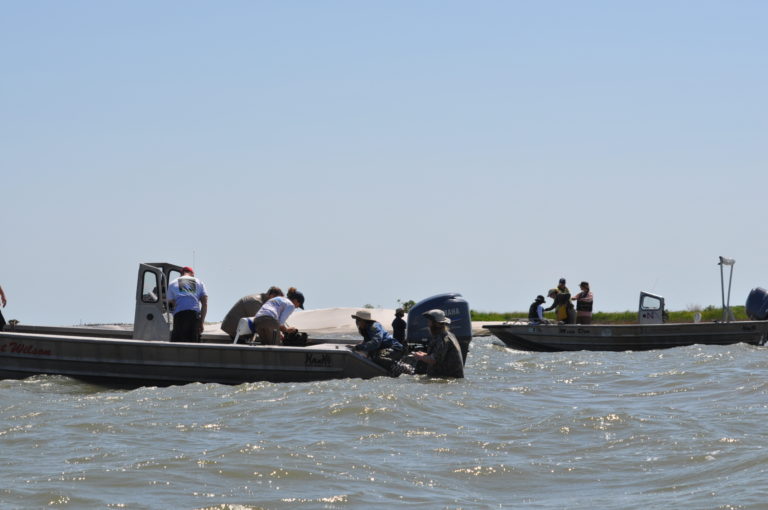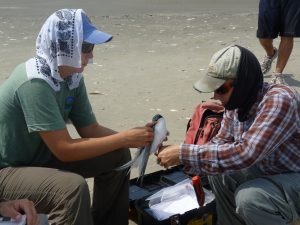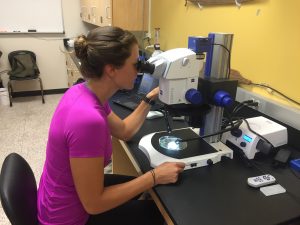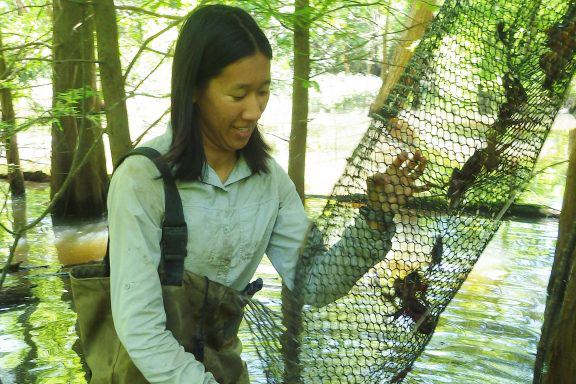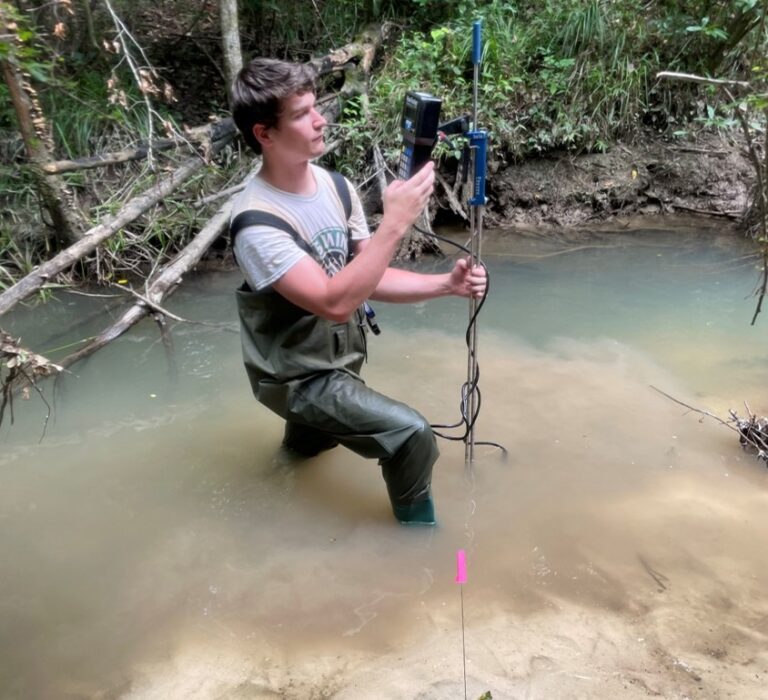BIOLOGY
DEPARTMENT MENU
RESEARCH LABS
The Department of Biological Sciences is home to multiple faculty research laboratories. Laboratory work ranges from the molecular, to the organismal, to the ecosystem-level scale. Check out the faculty labs and research interests below:
Applied Plant Sciences Laboratory – (Dr. Jonathan Willis) The Applied Plant Sciences Lab conducts research intended to enhance the success of coastal restoration and management efforts, environmental assessments, and phytoremediation applications. Research needs in these focus areas are addressed using a combination of techniques from the fields of plant ecophysiology, pollution ecology, and multivariate statistical analysis.
Aquatic Ecology and Astacology Laboratory – (Dr. Chris Bonvillain) Research in the Aquatic Ecology and Astacology Lab focuses on the ecology and biology of Louisiana crayfishes and aquatic ecosystems. Research efforts assess ecological functions of aquatic habitats, the effects of physical and chemical habitat characteristics on aquatic biota, physical and physiological responses of aquatic biota to environmental hypoxia, changes in physicochemistry and biotic communities due to natural and anthropogenic influences, and distribution, life history characteristics, and diversity of crayfishes throughout the state.
Bayousphere Research Laboratory – (Drs. Allyse Ferrara and Quenton Fontenot) The Bayousphere Research Lab has its roots in fisheries but has expanded into coastal restoration. A large part of our fisheries research involves fish ecology within the upper Barataria Estuary. We use the Nicholls Farm to cultivate several species of plants that are used for restoration activities.
Coastal Ecology Laboratory – (Dr. Tim Clay) Our lab is broadly interested in ecology and evolution of ectotherm physiology. Our integrative biologists use field observations to form predictions, and perform physiological and genetic experiments at the individual, population, and species level to assess our predictions. The majority of our research has focused on amphibians and reptiles, often abundant within the ecosystems of south Louisiana. As an active lab, we focus mostly on local systems that provide easily accessible research opportunities for both undergraduate and graduate students.
Environmental Biotechnology Laboratory – (Dr. Raj Boopathy) Research topics include biological treatment of wastewater, bioremediation of hazardous chemicals including explosives and oil spills, survey of antibiotic resistant bacteria in Bayou Lafourche and sewage treatment plants, lignocellulosic ethanol production, and antimicrobial properties of spices.
Infectious Diseases Laboratory – (Dr. Raj Nathaniel) The IDEAL lab studies epidemiology of MRSA, anthropomorphic markers as measures of water quality, innate and adaptive immune responses in vertebrate and invertebrate animals, and characterization of vibrio-phages.
LaFleur Laboratory – (Dr. Gary LaFleur) We look at several different methods for monitoring environmental health by measuring distinct biomarkers in a range of estuarine species. Projects include the characterization of reproductive proteins in fish, surveys of the Maculata Apple Snail in the BTES, conducting frog call surveys every spring, and using unmanned aerial systems to collect images of barrier island vegetation.
Micreaux Laboratory – (Dr. Bliss Broussard) In the Micreaux Lab, we study the complex interactions between microbes and Louisiana’s distinctive aquatic ecosystems, from coastal waterways to wetlands. By integrating molecular biology and environmental microbiology, we investigate how bacteria adapt to environmental changes, form resilient biofilm communities, and shape ecological balance. Our ultimate goal is to promote sustainability, protect Louisiana’s valuable cultural and economic resources, and develop innovative practices to ensure seafood safety, supporting both public health and the local economy.
Molecular Cell Biology Laboratory – (Dr. Himanshu Raje) Heat shock is a predominant environmental stress. The research in the Molecular Cell Biology Lab aims at testing the effect of heat shock on the transcription of retrotransposons (jumping genes); specifically the R1 retrotransposons located within the ribosomal DNA of Drosophila melanogaster. The other aspect of research in the lab focuses on a potential utilization of retrotransposons as a therapeutic tool.
Zou Laboratory – (Dr. Enmin Zou) The Zou lab studies how aquatic invertebrates, primarily crustaceans, function under normal conditions and under chemical stress. Current efforts center around the elucidation of hormonal control of crustacean molting and mechanisms for molting disruption by xenobiotics.

